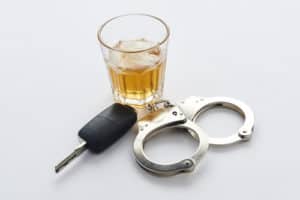
In most situations, if a person is arrested for drinking and driving, they will face misdemeanor driving while intoxicated (DWI) charges. However, if your intoxication causes an accident that led to another person getting seriously injured, you might face felony charges for intoxication assault.
If you are facing charges of this nature, a Lewisville intoxication assault lawyer from the Law Offices of Randall B. Isenberg can take steps to protect your rights. Randall B. Isenberg has more than 30 years of legal experience, including several years while serving as a former Senior Chief Felony Prosecutor and State District Trial Judge. Contact our law firm at (214) 696-9253 to schedule a confidential consultation to discuss your case.
Understand What Is Considered an Injury in Intoxication Assault Law
Per Texas Penal Code § 49.07, intoxication assault is a crime that you can be charged with if you severely injure someone while driving intoxicated. Furthermore, the injuries sustained by the victim, referred to as “serious bodily injury,” must meet the following qualifications:
● Makes it more likely that the person can die from the injury
● Causes a permanent and serious disfigurement
● Causes either an extended or permanent loss of a bodily function
It is important to understand that these charges may result even if no other vehicles were involved. For example, if you had a friend or family member in your vehicle at the time of a collision, you might still face these charges if your passenger was injured. Even if your loved one does not want to press charges against you, this decision is up to the prosecutor.
If you are facing intoxication assault charges, contact our firm to learn more about how you may be able to protect your rights during this process.
Penalties for Intoxication Assault Include Fines, Jailtime, License Suspension
Intoxication assault is a third-degree felony, but there may be additional factors that can increase the charges against you. If the crime is charged as a third-degree felony, the potential penalty is:
● Two to 10 years of incarceration
● $10,000 in fines
● Suspended driver’s license for six months to two years
The crime can be charged as a second-degree felony if any of the following circumstances apply:
● The victim was a peace officer, emergency medical services worker, or firefighter who was discharging their duties at the time of the collision
● The collision caused the victim to suffer a traumatic brain injury (TBI) that results in a permanent vegetative state
If you are charged with a second-degree felony, the potential penalty is:
● Incarceration up to 20 years
● Fines up to $10,000
● Up to 600 hours of community service
For either a second- or third-degree felony, you could also face additional penalties from the court in the form of:
● Mandatory DWI class
● Court-ordered treatment program
● Required ignition interlock device or deed-lung device
● Random substance testing
● Suspension of your driver’s license
● Electronic monitoring
Other Related Intoxication Offenses May Apply to Your Case
Intoxication assault is a DWI-related crime, but you may also face related charges, such as:
● Driving while intoxicated: According to the Texas Penal Code § 49.04, you may face charges of driving while intoxicated if you were found operating a motor vehicle in a public place while intoxicated.
● Reckless driving: If you recklessly drive a vehicle completely ignoring the safety of others, you might face reckless driving charges, per the Texas Transportation Code § 545.401.
● Leaving the scene of an accident: The Texas Transportation Code § 550.021 classifies a hit and run as a third-degree felony if you cause an accident with serious bodily injury. If you do not stop your vehicle at the scene of the accident and check if anyone was injured or you leave the scene before exchanging information with the other driver, you may face serious charges.
● Driving while license invalid: Under the Texas Transportation Code § 521.457, driving without a valid license and causing a motor vehicle accident that results in serious bodily injury is a Class A misdemeanor.
A Lewisville Intoxication Assault Lawyer Can Help You with Your Case
If you are charged with intoxication assault, a Lewisville intoxication assault lawyer from our law firm can help you with your case in many ways. Our legal team may:
● Discuss your rights: We can discuss whether you must provide any information to law enforcement and make sure that you are not questioned without an attorney present.
● Help you with bond relief: Your lawyer may be able to argue for a low bond or for you to be released on your own recognizance to minimize the financial impact of the charges against you.
● Devise a legal strategy: We can tailor a defense based on the strengths of your case, such as disputing intoxication, calling into question the accuracy of test results, or arguing that law enforcement made a quick judgment call against you due to racial or personal bias.
● Challenge evidence against you: We may prepare pre-trial motions to get evidence suppressed in your case if it was illegally obtained.
● Negotiate a plea agreement: We may be able to talk to the prosecutor about potential alternatives, such as dismissing some of the charges against you, pleading to a lesser offense, or taking part in alternative sentencing as part of a plea agreement.
● Defend your rights in court: If you decide to go to trial, we can zealously defend your rights in court.

Contact the Law Offices of Randall B. Isenberg to Learn More
If you were charged with intoxication assault, a Lewisville intoxication assault lawyer from Randall B. Isenberg can help. Attorney Isenberg is Board Certified in Criminal Defense by the Texas Board of Legal Specialization (TBLS) and is certified as a Criminal Defense Advocate by the National Board of Trial Advocacy. These certifications reflect his knowledge and skill in the criminal defense arena, which he can put to use to defend your rights.
Call our firm at (214) 696-9253 for a confidential consultation to discuss your legal rights and the defenses you may be able to raise.










